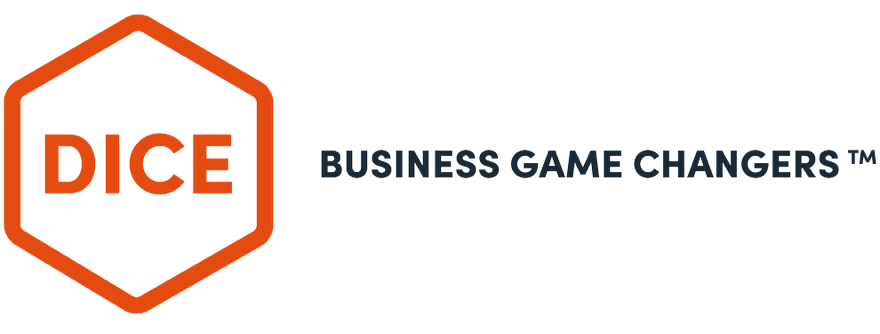Call us on: 01244 478692
At DICE we are passionate about providing personal and professional client-centric support which means we switch between a variety of interventions when working with you. These can be summarised into the three areas of coaching, mentoring, and consulting. One of the things we regularly find is that there is a degree of confusion about the difference between these approaches so if you’ve ever wondered which approach is the best fit for your business, this blog explains the difference!
Let’s start with coaching. Coaching is all about helping you move from one place to another. It’s like having a personal GPS for your business, so like a GPS you start by inputting your current location, then identifying where you want to get to (your destination). Your coach won’t give you direct answers or tell you what to do, but they’ll help you get to the outcome by asking the right questions, noticing your reactions (what isn’t being said as well as what is), and acting like a mirror to you. A good coach will give you the space and time to think for yourself because the mind that has the problem is usually the best mind to unlock the solution. For small and medium-sized businesses, coaching can be a game-changer. It fosters a culture of continuous growth, empowering your team members to take ownership of their roles and unleash their own creativity and abilities. When your employees feel empowered to uncover the answers within themselves, they become more motivated and engaged, leading to increased productivity and overall business success. It’s a win-win!
Mentoring on the other hand is about imparting knowledge and teaching. Imagine having a wise sage by your side, someone who’s been in your shoes and knows the ins and outs of your industry or the business challenges you are facing. That’s what a mentor brings to the table. They provide invaluable guidance, share their own experiences (the good, the bad, and the ugly), and offer strategic insights to help you overcome obstacles and seize opportunities. We mentor in a variety of ways, not just 1-1. Our leadership development programme is delivered in a mentoring style, as we often share our own experiences of leadership challenges and wins, as well as theoretical frameworks to aid learning. We also deliver ‘mastermind’ mentoring in a mixed group, which helps individuals not just learn from DICE mentors but also from one another through a shared, adult learning environment.
Having a mentor can be a lifeline for leaders of small and medium sized businesses, who can often feel lonely and isolated, prone to feelings of overwhelm. Mentors can open doors to new networks, connect you with potential clients or partners, and offer practical advice based on real-world experiences. This kind of support can save you time, money, and loads of stress as you navigate the complexities of running a business. Plus, the mentor-mentee relationship often leads to long-lasting connections and a sense of camaraderie in the business world.
So, what about consulting? Think of it as calling in the A-team when you need specialised expertise for a particular project or challenge. Small and medium-sized businesses may not have all the resources of their larger counterparts, but that’s where hiring an expert can help. They swoop in with their supercharged skills, analyse your specific needs, and craft tailored solutions to elevate your business.
Consulting is like a turbo boost for small and medium-sized businesses. It allows you to access top-tier expertise without the need for long-term commitments of hiring an expensive employee. Whether it’s getting clear on your strategy, improving your internal communications activities or helping you to create a high performing culture, a consultancy approach helps to bring efficiency and effectiveness to the table.
In a nutshell, a well-rounded mix of coaching, mentoring, and consulting can take your small or medium-sized business to new heights because in the dynamic world of business, adaptability and growth are the keys to success.
If you think it’s time to invest in the growth and development of your team and want to tap into the wisdom of the DICE team, we would love to meet and discuss your needs. Drop us a line at: [email protected] to roll with us!
Something we are regularly asked by business owners is: what is the key to unlocking the potential that I know exists in my business? Our answer is simple. Equip your Managers with leadership skills.
As soon as you get into the realms of growth where you have a team of 20 people or more, your management structure and their individual abilities to lead, manage and motivate people becomes key to your success.
A manager must possess a diverse set of skills and adopt specific strategies tailored to the needs of their team, and it is usually a very different set of skills which got them to be in a management position in the first place – which tends to be competency or expert knowledge in a given field. To give you a flavour of what we mean, here are the top things a manager needs to be able to do:
- Lead by Example: A manager must set the standard by demonstrating the behaviours and values they want to see in their team. Leading by example builds trust and respect, inspiring employees to follow suit.
- Communicate Clearly: Effective communication is crucial in leadership and management. A manager should articulate goals, expectations, and feedback clearly and transparently, ensuring everyone is on the same page.
- Inspire a Shared Vision: A great leader creates a compelling vision that inspires and excites the team. A clear and motivating vision gives employees a sense of purpose and direction towards their individual contribution in achieving it.
- Empower and Delegate: Managers should empower their team members by delegating tasks and responsibilities according to individual strengths and skills. This fosters a sense of ownership and accountability.
- Provide Support and Resources: Motivation thrives in an environment where employees feel supported. A manager should ensure their team has the necessary resources, training, and guidance to succeed.
- Recognise and Reward: Acknowledging and celebrating employee achievements and efforts boosts morale and encourages continued dedication. A simple “thank you” can go a long way in motivating team members.
- Develop and Mentor: A manager should invest in the professional development of their team members. Providing opportunities for growth and offering mentorship can enhance motivation and loyalty.
- Encourage Collaboration: Building a collaborative and inclusive culture fosters creativity and teamwork. A manager should encourage open communication and collaboration among team members.
- Listen and Be Approachable: Being a good listener and approachable leader allows employees to share their ideas, concerns, and feedback without hesitation, fostering a positive and supportive work environment.
- Handle Conflict and Challenges: Conflict resolution is a vital skill for a manager. Addressing conflicts promptly and fairly helps maintain a harmonious team dynamic and boosts motivation.
- Promote Work-Life Balance: Recognise the importance of work-life balance and encourage employees to maintain a healthy equilibrium between their personal and professional lives.
- Lead through Change: Change is inevitable in any organisation. A manager should guide their team through periods of change, offering reassurance, and helping employees adapt to new circumstances.
- Monitor Progress and Provide Feedback: Regularly track progress towards goals and provide constructive feedback to help team members improve their performance and stay motivated. Don’t underestimate the power of a one to one.
- Celebrate Success: Celebrate team successes, big and small, to foster a positive and rewarding work environment. Publicly recognising accomplishments boosts team spirit and encourages continued excellence.
We’ve said it before and we will say it again, it is vital to ensure your managers understand these are the areas they are responsible for, and are equipped with the skills, tools and knowledge to be able to do so effectively. Upskilling your existing managers with leadership development can make all of the difference in creating a high-performing and engaged workforce that contributes to the success of your business. Our leadership development programme is delivered in a flexible, adult-learning environment to suit your organisational needs. Get in touch to find out more: [email protected]
Any parents or grandparents reading will be familiar with the story of ‘We’re going on a bear hunt’. In this blog DICE Co-Founder Kate Cousens shares why she thinks running a business is like that story and her top tips for going the distance as a business owner.
There are many differences between running a business and being employed but perhaps one of the key contrasts is that you have to be in it for the long haul and go the distance. As a reformed job hopper, this is something I have found personally challenging in the last five years since working for myself. When I say job hopper, I mean that I was always getting itchy feet after a 18 months or a couple of years and would look to move roles. In the early part of my career that looked like changing organisations….reading job ad’s was a hobby and my CV was always polished and ready to go!
When I became a parent this looked like staying in one organisation but moving roles – sideways and then eventually upwards. None of this did me any harm – in fact I have always felt like it was a major benefit to both myself in terms of keeping me motivated, and also to the organisations I worked for, as I always brought fresh enthusiasm and energy to my work.
This mindset stayed with me in the early years of my business journey too, and it took me a very long time to get comfortable being uncomfortable, which you have to do when you work for yourself. There are no guarantees of success – you have to be visible; you have to sell yourself; you have to pitch for business and run the risk of losing. Like the words in the story: “I’m not scared” became a mantra for me (even when I really was!).
Since forming DICE with Steve Lloyd, the bear hunt, I mean business, has felt less scary as it’s great to have other people on your team to generate ideas, to develop content and to work with clients, but you still have to go the distance. Like in the story, there are still plenty of moments where you reach a muddy patch, or a snowstorm, or a deep dark forest which you can’t go over or under, you just have to go through. You have to trust your wellies and go the distance to catch that bear. So analogy over, here are my 3 top tips for going the distance in business…
- Know thyself and prosper – I know that keeping things fresh and feeling like I am always moving ahead is important for me, so with that in mind I prioritise me own personal development. I have gone from being a job-ad junkie to a course junkie! Every year I seek out different courses so that I can learn and add more strings to my bow, which also benefits the DICE business too, as I can bring that learning back to share with clients and franchisees. Everyone is different but it really helps to understand what makes you tick and weave that into your business.
- Prioritise self-care: Self-care means something different to each of us – for me it means getting a good night’s sleep and booking regular breaks in the year where I can switch off from running the business. Running a business always feels like I have homework due – there’s always something I could be doing to make the business better but I also know that when those feelings start to overwhelm me, it is a sure sign that I need a week off from the noise!
- Ask for help: This is something I struggle with but really want to work on! I am a perpetual ‘do-er’ and have a strong ‘hurry up’ drive (one of the five drivers of Transactional Analysis recognised by Kahler, 1975), which results in me often pushing myself to work harder and do more. Asking for help, either at home or with Steve in the business, doesn’t come naturally to me but I am getting better at it. This year I have even taken the plunge and started to outsource some things that I would
usually do myself….that is a big step forward for me. Asking for help can look like many different things – getting a cleaner to free up more time at home, moving a meeting time to help give you space to think beforehand, outsourcing things in your business that take up your time which could be better used to help the business go faster, or hiring a business mentor or coach to help you (we know some good ones!).
Unlike ‘We’re going on a bear hunt’, the story of business doesn’t end in going back to bed and hiding under the covers – as much as we might sometimes want to do that! But it is also extremely rewarding, working for yourself means that you are in charge of your own destiny, and you reap what you sow.
If you’re interested in finding out more about what support we offer at DICE, please get in touch – we’d love to meet and find out more about your business and how we can help.
Email: [email protected]
Empathy has always been an important leadership quality but following the pandemic it has become an essential skill in driving business results.
A global study by Qualtrics found 42% of people have experienced a decline in mental health since 2020. With significant upturns in people experiencing stress, anxiety and feeling emotionally exhausted. The way we work has been turned upside down and the boundaries that once existed between home and work have been blurred.
Great leadership requires a mix of all kinds of skills to create the right conditions for employee engagement and performance, however empathy might have been considered less important than some other skills prior to the pandemic. Not to be confused with sympathy, empathy is about identifying with others, understanding their feelings and then taking appropriate supportive action.
Now employees expect higher degrees of compassion and emotional support. As we go through tough times, struggle with burnout, or find it challenging to find happiness at work, empathy is a powerful antidote and can contribute to positive experiences for individuals and teams.
So how can you bring more empathy into your leadership? Here are our top tips:
1. Ask open questions and listen with eyes as well as ears
Being in the same room with someone and observing them has always been a powerful way to recognise when someone is struggling. However, if you are leading from home, it makes observing harder. This means leaders must really listen and observe body language. Asking open questions such as ‘tell me more’ during coaching conversations.
2. Recognise individual’s needs
Think back to Maslow’s Hierarchy of Needs and use this as a guide to address what individuals actually need from you as a leader. In the workplace, the most basic professional needs include:
- Financial compensation for providing the essentials
- Having enough work to stay busy and engaged
- Creating a sense of belonging and community
- Showing appreciation for work ethic and effort
3. Suspend judgment
Judgment is our own perception of something or someone. As humans we are inherently judgmental, but when trying to understand and empathise with others, it is important to try and suspend your own judgment of a person and situation. To practice empathy, we don’t need to see the person from our context or perspective, but their perspective only.
Research suggests that employees with empathic managers are more innovative and engaged in their work than employees with less empathic managers. If you need any support developing your managers leadership skills, we can help. Get in touch to find out about our leadership development programmes.




